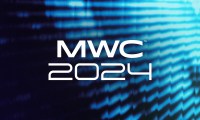
Amidst an onslaught of newly unveiled smartphones — many of which run Google’s Android operating system — GSMA Global Mobile Awards judges have named the iPhone 4 the “Best Mobile Device” of 2011 for its “great screen, sharp design, fantastic materials, and phenomenal ecosystem for app developers.” This, despite the device’s widely-reported reception problems. (Antennagate, anyone?)
Apple has long avoided the technology industry’s premier events, such as Mobile World Congress (MWC) the annual Consumer Electronics Show, instead opting to hold its own highly-publicized press events. Not only that, but the Cupertino, CA-based company seems to leak news of upcoming products during these events, presumably to steal some of the thunder of its competitors who often use the shows as an opportunity to launch new products. During this year’s MWC, for instance, multiple reports have surfaced about a line of three new iPhones, which unnamed sources say could be announced this year. Big news, indeed.
Notable releases at MWC 2011 include the LG Optimus 3D, the first-ever smartphone to allow users to watch and record 3D video; the 4.8-inch Acer Iconia Smart; and the Samsung Galaxy S II, as well as a slew of new tablet PCs that will compete with the Apple iPad.
Apple aside, judges at MWC awarded HTC the honor of “Device Manufacturer of the Year” for its line of Android-based smartphones.
“This company has built its market presence from nowhere, with fresh branding and marketing and a strong portfolio of devices across many platforms,” the judges said in their official comment. “In particular, it has proven an exceptionally popular and enduring phone manufacturer. With great communication and good customer service, this is a well-deserved award.”
The judges also “highly commended” HTC for the HTC Desire, which “set the bar for Android phones across much of the world in 2010.”
To view the full list of 2011 GSMA awards and winner, click here.
Editors' Recommendations
- Best refurbished iPhone deals: Get an iPhone 14 for $513
- Best iPhone deals: Save on iPhone 15, iPhone 15 Pro Max and more
- How to find your lost phone (tips for iPhone and Android)
- Why you should buy the iPhone 15 Pro instead of the iPhone 15 Pro Max
- iPhone SE 4: news, rumored price, release date, and more



